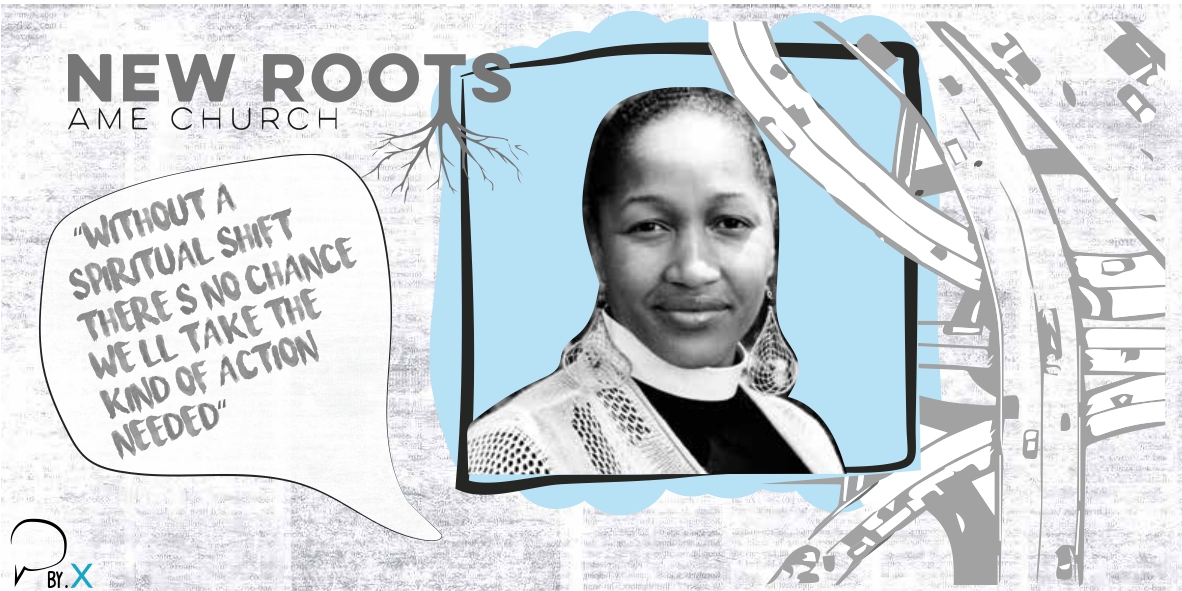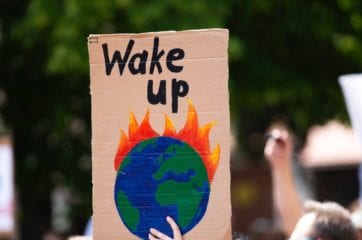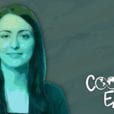“If we don’t have a spiritual shift, there’s probably no chance we’ll take the kind of radical action we’ll need.”
Boston native Reverend Mariama White-Hammond recently started her own congregation in the city, with a hope to make climate justice a central pillar of her message. I talked with her about the role of faith and spirituality in conveying the message about a changing climate, and importantly, our individual roles in being part of the solutions.
To her, climate change is one of the several issues we face today that are all deeply interconnected and need to be addressed through a deep spiritual shift within each of us. “People tell me I work on immigration, social justice, climate change – but to me they are all one of the same” she told us. Reverend Mariama is a a Faith Fellow with the Green Justice Coalition, the former Executive Director of Project HIP-HOP, and was recognized this year as one of Grist’s 50 changemakers.
On this episode, we talked about everything from faith and scripture as a vehicle for communication and engagement on these issues, to the history of the environmental movement. The need for inclusivity and the pursuit of equity was also a central thread through this conversation.
Reverend Mariama takes a very hopeful view when it comes to solving the issues at hand, “there is a lot of things about the world that if you ask people they would say yea, it’s too bad, but that’s just the way it is, if we have to rethink the way it is, that opens up the possibility to do so at a very deep level.” The need to solve the climate crisis provides avenues for change in all other systems that have been deeply unjust and unequal, such as transportation, access to resources, and education. “We need all hands on deck if we are to have any chance of survival, but we have created a society in which some people are completely marginalized.”
On why giving up is not an option, she beautifully and powerfully makes a connection to her ancestors and why giving up is just not an option. She tells me, “I have thought back to my ancestors, and what it would have been like to be put in slave ships. Being taken by people who were beating them and shackling them, not being able to imagine how different your life would be. And they survived that, in part because they imagined that I would exist. And so I believe that kind of hope and perseverance is built into my DNA. I have to do the same thing, look at this crazy and overwhelming situation and I have to decide that I am going to fight for the generations that will come after me.”
Talking with her is a pleasure and an honor; the clarity of her message and the purpose behind her words is apparent and powerful. She proposes that the journey to save this planet is also an introspective one that will necessitate a spiritual shift in the way we inhabit the earth. While it may be perceived as a religious message, hers is actually universal and deeply human.
Listen to the full interview here, and help us share this extraordinary message by sending this along with friends, neighbors, colleagues, and anyone you think would benefit from it.
Reading behind this episode:









